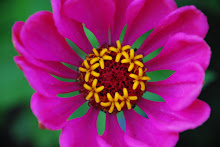Autumn leaves are falling, mornings are crisp and cool, pumpkins are popping up on porches, and flocks of honking geese are flying overhead. Happy October! I am enjoying all the sights, sounds, smells, textures, and tastes of the season. Several times a week soup is bubbling on my stove and casseroles, muffins, and cobblers are baking in my oven. Planting bulbs, garlic, and cover crops are on my gardening agenda.
As the summer harvest is coming to an end, I am culling and composting tomato, cucumber, squash, and bean plants. Where there are not winter crops planted, I sow a crimson clover cover crops. Fall planted cover crops help build the soil in my edible raised beds for planting next spring. My organic strategy in the food garden is to rotate crops, remove diseased & pest infested plant material, apply compost and compost tea several times a year, use organic fertilizers, plant companion plants for a biodiverse garden and plant cover crops. I find this organic regime is the key to my productive, healthy garden.

While I clean up my food garden, it is another case in my ornamental garden. We are trained to rake up leaves, clean up debris in the fall. We are taught debris harbors pest and disease and a healthy garden is a clean garden. So-called "debris" like leaves and other plant material is actually wonderful organic matter. Mother nature turns this fallen organic matter into nutrients in the soil. Soil is teeming with life that works on composting and building our soil.
I say rake up the leaves on your sidewalk, paths, and lawn, and just leave the fallen leaves on the soil in your garden beds. In early winter once all the leaves in my garden have fallen, I rake them around my plants and spread on top a layer of bark mulch. My garden looks clean and neat but I've left all the organic matter on the soil. This mulched area provides excellent habitat for overwintering beneficial bugs and microscopic soil life.

Many flowers that have lost petals are now an excellent source of food for birds. The bare pods that are left behind look pretty and are packed with nutritious seeds. I leave my sunflowers, rudbeckia, and echinacea all standing in the garden during fall and winter. The birds are working hard to pick them clean of seeds. It is super fun to daily watch blue jays hang upsides down from sunflower heads removing seeds.
Happy Autumn gardening friends! Jolie











No comments:
Post a Comment